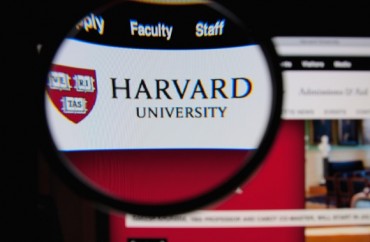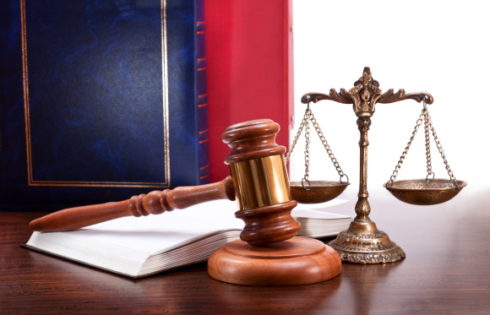
ANALYSIS: College essays under spotlight as possible means to continue to use race in admissions decisions
Harvard University said it plans to continue to use race as a factor in admissions in the wake of the 6-3 Supreme Court decision last week that ruled affirmative action enrollment decisions are unconstitutional.
A June 29 memo to the Harvard community from President Lawrence Bacow and more than a dozen deans and provosts cited a line in the ruling that states colleges and universities may consider in admissions decisions “an applicant’s discussion of how race affected his or her life, be it through discrimination, inspiration, or otherwise.”
The Harvard memo states campus leaders plan to do just that: “We will certainly comply with the Court’s decision.”
“…For almost a decade, Harvard has vigorously defended an admissions system that, as two federal courts ruled, fully complied with longstanding precedent. In the weeks and months ahead, drawing on the talent and expertise of our Harvard community, we will determine how to preserve, consistent with the Court’s new precedent, our essential values,” the memo stated.
Some legal scholars quickly sounded the alarm on the implications of the meaning of Harvard’s smarmy memo.
“The Supreme Court gave universities a narrow opening, and Harvard just announced it’s going to drive an affirmative action truck right through it,” stated Cornell Law School Professor William Jacobson in a tweet.
UC Berkeley government Professor Steven Hayward wrote a piece on Powerline titled: “Harvard to Supreme Court: Drop Dead.”
“As I predicted, colleges are determined to defy the Supreme Court’s ruling today. Harvard’s new president issued a statement about how this is a ‘hard day,’ along with a signal that they stand ready to find a workaround,” Hayward wrote.
However many scholars such as Hayward were quick to point out Harvard leaders cherry-picked that line from the ruling. In its full context, the ruling explicitly states race may not be used, even through tactics such as essays:
…the Harvard and UNC admissions programs cannot be reconciled with the guarantees of the Equal Protection Clause. Both programs lack sufficiently focused and measurable objectives warranting the use of race, unavoidably employ race in a negative manner, involve racial stereotyping, and lack meaningful end points. We have never permitted admissions programs to work in that way, and we will not do so today.
At the same time, as all parties agree, nothing in this opinion should be construed as prohibiting universities from considering an applicant’s discussion of how race affected his or her life, be it through discrimination, inspiration, or otherwise. But, despite the dissent’s assertion to the contrary, universities may not simply establish through application essays or other means the regime we hold unlawful today. (A dissenting opinion is generally not the best source of legal advice on how to comply with the majority opinion.)
“[W]hat cannot be done directly cannot be done indirectly. The Constitution deals with substance, not shadows,” and the prohibition against racial discrimination is “levelled at the thing not the name.” Cummings v. Missouri (1867). A benefit to a student who overcame racial discrimination, for example, must be tied to that student’s courage and determination. Or a benefit to a student whose heritage or culture motivated him or her to assume a leadership role or attain a particular goal must be tied to that student’s unique ability to contribute to the university. In other words, the student must be treated based on his or her experiences as an individual—not on the basis of race.
Harvard is not the only school to jump on the caveat in the decision as a means to continue to use race in admissions decisions.
Steve McGuire, a scholar with the American Council of Trustees and Alumni, pointed out Middlebury College and Vermont Law & Graduate School made statements about how they will flout the decision as well.
“Vermont Law & Graduate School goes further than Harvard or Middlebury and outright says it will ‘consider how identity in all its manifestations, including race, ethnicity, national origin, gender identity, or sexual orientation, among others, have affected an applicant’s life,'” McGuire tweeted.
Vermont Law & Graduate School goes further than Harvard or Middlebury and outright says it will “consider how identity in all its manifestations, including race, ethnicity, national origin, gender identity, or sexual orientation, among others, have affected an applicant's life.” pic.twitter.com/hoL11siXTv
— Steve McGuire (@sfmcguire79) June 29, 2023
Experts have predicted the topic of race-based colleges admissions will continue to face more litigation and the topic is far from settled, especially now with the supposed caveat etched into the decision.
“College admissions consultants are … saying it gives colleges admissions staff an easy way to consider race, as long as applicants discuss it in an essay. Even before the decision came down, some colleges were considering adding questions about personal identity to their applications in the expectation that the court would junk the current affirmative action system,” Semafor reported.
“It’s a huge loophole,” Brian Taylor, managing partner at Ivy Coach, told Semafor. “Will the Common App likely ban the race box on applications? Yes. But colleges are going to find ways around that race box. It’s going to be more about the story.”
IMAGE: Gil C. / Shutterstock
Like The College Fix on Facebook / Follow us on Twitter






Please join the conversation about our stories on Facebook, Twitter, Instagram, Reddit, MeWe, Rumble, Gab, Minds and Gettr.